Good afternoon friends! Anyone who uses cosmetics understands perfectly well that their long shelf life requires the presence of preservatives (parabens). Otherwise, pathogenic microorganisms, mold, and various bacteria multiply, and no self-respecting cosmetic brand can allow this. We have to resort to the use of certain parabens, since similar preservatives have not yet been invented today. Let's find out what parabens are in cosmetics and how they can harm us?
Parabens - what are they?
Parabens are a number of chemical components used in the cosmetics industry, medical preparations, and less commonly in the food industry. They have antibacterial and antifungal properties and are important for extending the shelf life of various products that require preservatives. In scientific terms, parabens are a series of esters of para-hydroxybenzoic acid. This acid can be found in natural components, and parabens are exclusively chemical derivatives. Any cosmetic product contains a water base and various herbal additives in the form of oils, esters, and extracts. Their long-term storage after opening the package exposes the product to the rapid proliferation of bacteria, as a result of which it becomes unusable. In order for the products to have the proper appearance and retain their declared properties for a long time, parabens are added to them in order to prevent the growth of bacteria. Otherwise, their absence would have a detrimental effect on the condition of our skin, nails and hair. One thing is for sure, they are not toxic, but their negative side has not yet been fully identified, which is probably why there is a skeptical attitude towards them.
How to determine the presence of parabens in cosmetic products
This couldn't be easier; just look at the ingredients listed on the label of your products. Some components of cosmetic products are designated on the labels by the letter E with a specific digital value. For example: E214-ethylparaben, E216-propylparaben, E218-methylparaben, butylparaben, benzylparaben, isopropylparaben, isobutylparaben.
It is necessary to understand that it is impossible to detect all preservatives in one product at once. Which one is used depends on what the product is intended for. The lowest percentage of parabens is found in decorative cosmetics. The greatest difference is between products with oily and liquid textures. You may be surprised, but the presence of parabens is in all of these products:
- In shampoos, hair styling products
- In shower gels
- Men's cosmetics. Aftershave, foams, gels
- Various creams
- Liquid soap
- Toothpastes
- Eau de toilette, perfume
- Children's cosmetics
- Decorative cosmetics
- Medicinal products
The presence of parabens has been noticed not only in our cosmetics industry; countries in Europe, Asia and America similarly use them in their cosmetic products.
Positive aspects of parabens
Despite all the controversy about their dangers, they are currently among the most effective preservatives.
- Their use significantly increases the shelf life of cosmetics, medicines and food products while maintaining all useful qualities and appearance.
- More often, preservatives do not provoke allergic outbreaks and are calmly accepted by the body.
- Due to the low price of the preservative, the final product has an affordable price with high quality products.
Harm or benefit of parabens in cosmetics, their effect on the body
Many researchers ask this question, but, unfortunately, it is not possible to get a concrete answer. Why are parabens dangerous in cosmetics? There is an assumption that they tend to accumulate in the body, negatively affecting hormonal levels, and can lead to serious diseases. It's all about preservatives, similar to the female hormone estrogen. And excess estrogen negatively affects some people, especially women during pregnancy. A high level of estrogen can provoke disturbances in the development of the fetus and disruptions in further reproductive activity.
With a large accumulation of preservatives in the body, the risk of breast, uterine and testicular cancer in men increases.
Paraben preservatives have the ability to increase the negative effects of the sun. They affect DNA molecules, causing the skin to age too quickly. As a result of applying care products, the opposite effect is obtained.
Allergic reactions to them are rare, but no one completely excludes them. Therefore, although in isolated cases, there is a possibility of occurrence.
A high proportion of guilt regarding their presence and harm to health relates to deodorants. This mistrust of them was caused by a number of studies in which traces of parabens were identified in the analysis of breast cancer tumors. The cause of preservatives entering the body was supposedly deodorants. Later, a refutation immediately arises: the composition of deodorants does not contain a preservative, therefore, does not require parabens. As they say: “How many people, so many opinions.” Some really refute the harm of parabens, others are persistently confident in their negative impact, and are looking for an alternative to them.
Alternative to synthetic parabens
Cosmetic manufacturers have long been looking for a replacement for synthetic parabens. But unfortunately their attempts do not produce positive results.
Even the composition of decorative cosmetics includes parabens; at the moment this is the only effective remedy that can prevent the proliferation of pathogenic bacteria and is suitable in all respects. It is especially beneficial to use from the point of view of price interests.
Any cosmetics, one way or another, require preservatives. Whether they are natural or synthetic depends on the manufacturer. Nature has not deprived us and has offered several alternative natural preservatives, for example: extract from grapefruit seeds, birch leaves, pine bark, tea tree oil, eucalyptus oil, propolis and seaweed, fatty alcohol or alcohol. The most common is grapefruit extract, but its downside is its high cost, and naturally affects the high price of the final product. There is also a possibility of individual intolerance, which sometimes provokes allergic reactions. And no matter how much we praise natural preservatives, they also have their negative sides. In addition to allergic reactions, the skin can react negatively to essential oils or alcohol components, causing excessive dryness and causing a deterioration in its appearance.
Considering parabens, in this case they are suitable even for people with sensitive skin, and have very rarely been seen to cause negative reactions.
If natural preservatives are used in cosmetics, their shelf life does not exceed two or three weeks, exclusively in the refrigerator.
The high popularity of using parabens is explained by their low cost and effectiveness. At least this is a better option than previously used for these purposes, even more harmful formaldehyde preservatives. Evidence of this is science, which does not stand still, and there is a possibility of the invention of more advanced and safe preservatives.
Children's cosmetics - the danger of parabens
Unfortunately, children's cosmetics are no exception to the rule regarding paraben content. The preservatives used in the products affect the hormonal system of children. The use of creams with parabens negatively affects the health of boys, testosterone levels decrease. Children's bodies are more susceptible to the effects of carcinogens due to their low body weight. Because of this, you should be doubly careful when choosing children's products in order to protect your baby from exposure to harmful additives.
Are there cosmetics without parabens?
Numerous controversies and speculations surrounding the effects of parabens on the body prompted cosmetics manufacturers to find a way out of this situation. As a result, cosmetic products labeled “free-paraben” began to appear on store shelves like mushrooms. This inscription says that the product does not contain parabens. Can this be trusted?
After some thought, the producers cunningly resolved the situation. In fact, everything is much simpler than it seems. All they had to do was replace the names of these parabens with others, and as a result, everything remained in its place. For example, they replaced methylparaben with methyl paraoxybenzoate, ethylparaben-ethyl paraoxybenzoate, etc. These are the transformations with the disappearance of parabens. After all, in fact, the shelf life of the products has not changed, therefore, the composition of preservatives remains the same. And since no other analogues have yet been invented, pay careful attention to the composition of the labels of the products you purchase.
Is there a way out in organic cosmetics?
Horrible horror stories about the dangers of these preservatives force many women to switch to organic cosmetics, with the hope of purchasing gentle products. But this is another self-deception. Any cosmetics with a shelf life exceeding three weeks indicate that they contain parabens. In the case of organic cosmetics, the percentage of parabens is significantly reduced. Manufacturing companies simply cannot afford to use only natural preservatives; this significantly affects the high cost of ingredients, and accordingly production becomes unprofitable.
Be careful when buying organic cosmetics. Pay attention to its shelf life. You need to understand that the minimal inclusion of parabens in cosmetics reduces its shelf life.
In European countries, paraben standards are strictly defined and reduced to the lowest possible levels of 0.4% - when one preservative is included and 0.8% when several are included.
Nowadays, the production of cosmetics is simply impossible without the use of preservatives. To completely eliminate them from products, it is necessary to radically change the production system, and only some companies are capable of this. But there is a high probability of such changes in the future, since the demand for safe cosmetics is growing every year.
Manufacturers of cosmetics claim that the low percentage of parabens does not cause any harm to the human body. Whether you trust such statements is up to you. After all, any business implies high income with the smallest share of costs.
How to protect yourself from parabens
To at least slightly reduce your contact with parabens, follow the minimum rules:
- To ensure that the products you use are safe, use homemade cosmetics whenever possible. So you will probably know the composition of a cream or face mask, especially since natural cosmetics are becoming more popular. And as natural preservatives, it’s easy to choose the one that suits your preferences and skin type, since there is a large list of them, for every taste.
- In summer, at high temperatures, it is better to avoid applying products with parabens to avoid interaction with the sun's rays, thus protecting your skin from premature aging.
One way or another, it is very difficult to completely avoid the use of parabens, since they are present in many of the products we consume. But research continues and there is hope that in the near future we will be able to be completely confident in the safety of the products we use.
What is your opinion about these preservatives? Share in the comments. If the article was useful to you, share it with your friends on social networks by clicking on the button. Be healthy!
Share "Parabens in cosmetics - what are they? Why are they dangerous for the body"
“Organic”, “natural”, “paraben-free” - these labels on cosmetic packaging can drive you crazy. In the sense, of course, that in this case it is absolutely impossible to leave the store without buying something. But are paraben-free products really better than their paraben counterparts? Let's try to understand this, and at the same time decide what parabens are and whether they should be avoided.
What are parabens
Parabens are a type of preservative that is commonly used to inhibit the growth of microbes in cosmetic, food and pharmaceutical production. They are esters of para-hydroxybenzoic acid, a chemical compound found naturally in fruits and plants.
The most popular parabens are methylparaben, ethylparaben, propylparaben and butylparaben, as well as isopropyl, isobutyl, pentyl, phenyl and benzylparabens. The choice depends on the fact that parabens work differently in different conditions and act on different groups of microbes, plus, manufacturers often use combinations of parabens to enhance their preservative effect.
Parabens were developed in the 1920s and today this type of preservative is the leader in use in cosmetics (according to labmuffin.com, they can be found in 85% of manufactured products). The popularity of parabens is quite obvious: they are relatively cheap and effective even in small quantities. In addition, they have a fairly long history of safe use and a relatively small risk of an allergic reaction, mainly on damaged skin.
Why are we used to thinking that parabens are harmful?
Despite all the obvious benefits, over the past 10-15 years we have become accustomed to the idea that parabens are something terrible. However, this opinion is based on only two studies. Thus, in 1998, Professor Robb Rutledge discovered that during experiments on rats, parabens bound to estrogen receptors and, as a result, enhanced the effect of female sex hormones. Excessive exposure to estrogen has been associated with the development of breast cancer and reproductive dysfunction.
The situation got worse in 2004, when Darbre's research team reported that they had identified the effect of parabens on 20 different types of breast tumors. This has led to major organizations including the Campaign for Safe Cosmetics, the Environmental Working Group and the David Suzuki Foundation calling for a government ban on the use of parabens in personal care products.
The EU Commission (which, however, has not banned parabens, despite the “horrific” information about them) has limited the amount of parabens in products to 0.19% and banned their use in products for children under 3 years of age. However, the report emphasized that they limit isopropyl-, isobutyl-, pentyl-, phenyl- and benzylparabens not because of evidence of harm, but because of a lack of sufficient data.
Why are parabens still not banned?
It may seem that the above studies are quite eloquent. Still, most scientists who have reviewed not only the results, but also the research, agree that we shouldn't worry too much about parabens in cosmetics or anywhere else. A logical question arises here: why?
The fact is that the 1998 study by Robb Rutledge and his colleagues was a test tube study. Tests were carried out first on yeast cells specially cultivated for the experiment, and then on laboratory rats. The tested parabens were many times weaker than estradiol, the main and most active female sex hormone. In particular, butylparaben, the most powerful of the parabens, turned out to be 10,000 times weaker than estradiol, and methylparaben - 2,500,000 times weaker. It's also worth considering that as part of the experiment, parabens were injected under the skin of rats, and this is definitely not something we usually do with cosmetics.
Regarding the Darbre study conducted in 2004, the scientific community has a lot of questions about it. First, there was no comparative analysis of the amount of parabens found in breast tumors and in healthy breasts. And this is quite pointless, since if we assume that there are parabens in both places, then their presence cannot in any way be associated with the risk of disease. And even if more of them were found in tumors than in healthy tissue, this still does not indicate any cause-and-effect relationship.
Secondly, the amount of parabens found in breast tissue was nanogram per gram - about half a teaspoon in an Olympic swimming pool. And one might be worried if parabens were powerful, but we know from Routledge's research that they are not.
And finally, the most important thing. Following criticism of the study, the authors backtracked, releasing the following statement: “Nowhere in the report does it say that parabens in cosmetics cause breast cancer. Such a measurement really cannot speak of cause and effect.” Another thing is that no one heard them anymore.
Parabens in cosmetics: benefits and harms
Manufacturers of cosmetic products use very small amounts of parabens, which are mainly metabolized by skin enzymes and then excreted from the body in urine. That being said, there are many much more powerful estrogenic chemicals that we are exposed to on a regular basis. For example, ethinyl estradiol and phytoestrogens.
Ethinyl estradiol is an estrogen often found in birth control pills and is approximately 2,000,000 times more potent than butylparaben. Even so, when experts talk about cancer risk, they mean only a small increase in risk when other environmental exposures are taken into account.
Phytoestrogens are naturally occurring estrogenic compounds found in foods. Soy phytoestrogens in particular contain genistein, which is approximately 200 times more potent than propylparaben. Here, however, it is worth keeping in mind that while a number of researchers talk about the dangers of phytoestrogens from the point of view of the occurrence of cancer, other studies confirm not only their relative safety, but even talk about the protective properties of phytoestrogens in terms of the risk of breast cancer.
Should you avoid parabens?
The potential link between breast cancer and parabens suggests that they should be avoided, just in case. But this decision becomes less logical when we learn that alternatives to parabens have their drawbacks.
So, one of the easiest ways to avoid parabens is to avoid using products with preservatives. But the problem is that cosmetic chemists began putting preservatives in products many decades ago because every time you open the cream, it comes into contact with air that contains microorganisms (bacteria, yeast, mold and fungi) that can get into cosmetics and begin to spread in it, gradually reaching dangerous levels. And if you apply a “contaminated” product to your skin, the microbes that have settled in it can cause serious infections, including staph.
Anhydrous foods (that is, those that do not contain water) technically do not require a preservative because microbes need water to grow. But the EOS lip balm scandal in 2015 showed that waterless products can't stay that way if used in wet conditions.
The main reason for using parabens is that they are effective even at very low concentrations. Natural preservatives are much less effective, so the product will either be perishable or end up containing too many preservatives. What are the dangers of natural preservatives used in high concentrations? First of all, for preservation, natural cosmetics brands prefer to use essential oils and organic acids, serious allergens, which significantly increase the risk of a reaction to a particular product.
For many years, there has been debate about how harmful paraben, which is found in cosmetics, is for human health. Some manufacturers are trying to find an alternative, others continue to use these ingredients. Paraben - what is it, a substance hazardous to health, or a regular additive? Oddly enough, there are simply no laws prohibiting its use.
Paraben - what is it
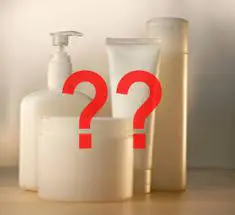
Paraben is a substance of chemical origin. Due to the fact that it has antifungal and antibacterial properties, cosmetics manufacturers widely use it during the manufacture of their products. Additionally, parabens can also be found in some foods and medications.
An interesting fact is that this substance was discovered in nature. Namely - in plants and blueberries. But the paraben we are talking about is produced exclusively synthetically. It is very easy to determine its presence in cosmetics.
Having seen these names, you can be sure that the cream or shampoo contains parabens.
Substance danger
Since 2004, research began on this substance and facts were made public that proved its danger.
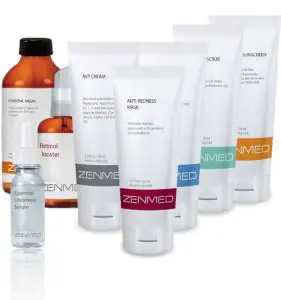
What is the danger:
- Parabens, by their mode of action, have an estrogenic effect. Consequently, the use of cosmetics that contain this substance is strictly contraindicated for certain categories of citizens. This is especially true for pregnant women. Excessive amounts of estrogen can impair fetal development and future reproductive ability.
- When parabens accumulate in the body, the risk of developing cancer of the uterus, breasts and testes (in men) increases.
- The substance enhances the negative effects of sunlight. When interacting with ultraviolet light, DNA can be damaged and the aging process of the skin accelerates. It turns out that you apply a moisturizing cream, but in the end you get a completely different result.
- Skin irritation and allergic reactions may occur.
However, it is worth noting that opinions differ. Some people believe that the best cosmetics are those without parabens, others are not afraid of anything. After all, all the harmful effects of the substance have not yet been officially proven.
Benefits of Parabens
- Sulfates and parabens are the most effective substances when it comes to extending the shelf life of a cosmetic product.
- Quickly absorbed in the body.
Despite the positive aspects, cosmetologists do not recommend using creams and shampoos that contain parabens for a long time.
Designations in cosmetology
Handmade cosmetics are very popular today. There is no doubt that it is the most effective and safest for the skin. However, when girls do not have the time or opportunity to make the cream themselves, they go to the store.
- Common parabens are E218, E214, E216, E214, E219.
- Specific parabens – benzylparaben, sodium salts, isobutylparaben.
By the way, sometimes decorative cosmetics also contain these substances. Therefore, be extremely careful before purchasing any skin product for yourself.
Alternative remedies
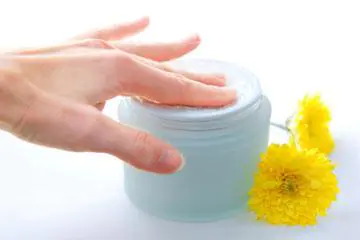
Large cosmetic companies are now constantly looking for a product that will serve as an alternative to paraben. However, at the moment, no substance with the same properties has been found.
Decorative cosmetics also contain them in their composition, because they are the best preservative among all, which prevents the growth of bacteria.
It is worth noting the fact that it is not only parabens that are scary. Essential oils and alcohol can also cause harm. They dry out the skin greatly, which worsens its condition.
It is simply impossible to produce cosmetics without preservatives. There is only one way out - to completely change the entire production system and use innovative technologies. However, this requires a large investment, and cosmetic companies simply cannot afford it.
What cosmetics to use
If you want to use the safest products for your skin, then handmade cosmetics are the best option. Although you can choose the best option in the store if you look carefully at the composition. Please note that vitamins C and E, tea tree oil, eucalyptus or propolis are present. It also has its drawbacks. Such cosmetics cannot be used for longer than 2-3 weeks, then they simply lose their properties.
Paraben - what is it, how to avoid it? Probably not at the moment. As you can see, if you buy natural skin cream, it has a short shelf life, so it is not very profitable. Not every woman has the opportunity to update her cosmetics every few weeks.
Cosmetics “Paraben Free”: believe it or not
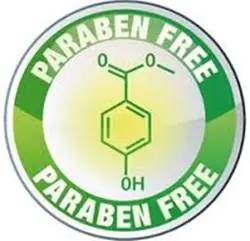
Very often on store shelves you can find cosmetics with very tempting labels that shout that they contain no parabens. Is this really true? As mentioned above, no alternative to this substance has been found.
Therefore, if you see a shampoo without parabens, you should not immediately believe that this is really the case. Manufacturers in this case act very cunningly. They simply change the name of the substance. If you are not an avid chemist, then don’t even pay attention to this. For example, it may be written that the composition contains methyl paraoxybenzoate. In fact, it is nothing more than methylparaben.
Should you trust organic cosmetics?
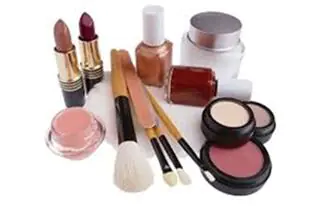
Parabens and the harm they cause to the skin have scared modern women so much that some have switched to using organic cosmetics. Few people understand that this is not a solution at all.
Remember, any cosmetics that are sold in the store contain at least a little paraben. Its addition as an ingredient is simply necessary because it helps products last longer. Imagine how quickly cosmetic companies would go bankrupt if they used only natural ingredients in their production.
If a cosmetic says that it is organic or natural, it just means that the proportion of parabens in it is lower than usual. But do not forget that this affects the shelf life. It is for this reason that you carefully look at what is written on the package before you buy yourself a shampoo, cream or anything else.
Useful tips
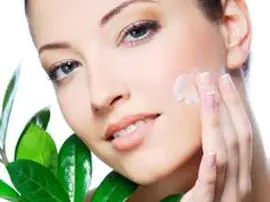
Absolutely every girl and not only uses cosmetics. Shampoos and creams are simply necessary products in any person’s arsenal. Of course, you want them to be as effective as possible and contain a minimum amount of chemicals. There is always a way out of the situation; below are some useful tips that will allow you to remain beautiful without harming your skin.
- If you purchase cosmetics in a store, always look at the ingredients. You can use products with paraben if its percentage is no more than 0.18.
- Do not apply the cream to your skin in too hot weather, because parabens react well with the sun. Better buy yourself soap with tar - this is the best protection for your skin. Regular washing will improve your complexion and get rid of unwanted acne. In addition, this soap is not drying.
- Try to do your cosmetics at home whenever possible. Let it be cream or shampoo. You will know exactly what you added to it and that there are no chemicals there. Also, when it comes to shampoo, making it at home has many advantages. The best part is that you can create a product that is perfect for your hair type.
- Add lemon and tea tree oil to your home cosmetics.
- Store purchased creams in the refrigerator so that their service life does not expire earlier than necessary. This is especially true in the summer.
- Always look at the packaging to ensure the expiration date. Do not use cosmetic products after this period has expired.
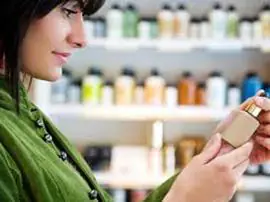
Paraben - what is it, a harmful additive in cosmetics or just a necessary ingredient? We will not get an answer to this question soon. Use useful skin care tips and you will always look young and beautiful.



